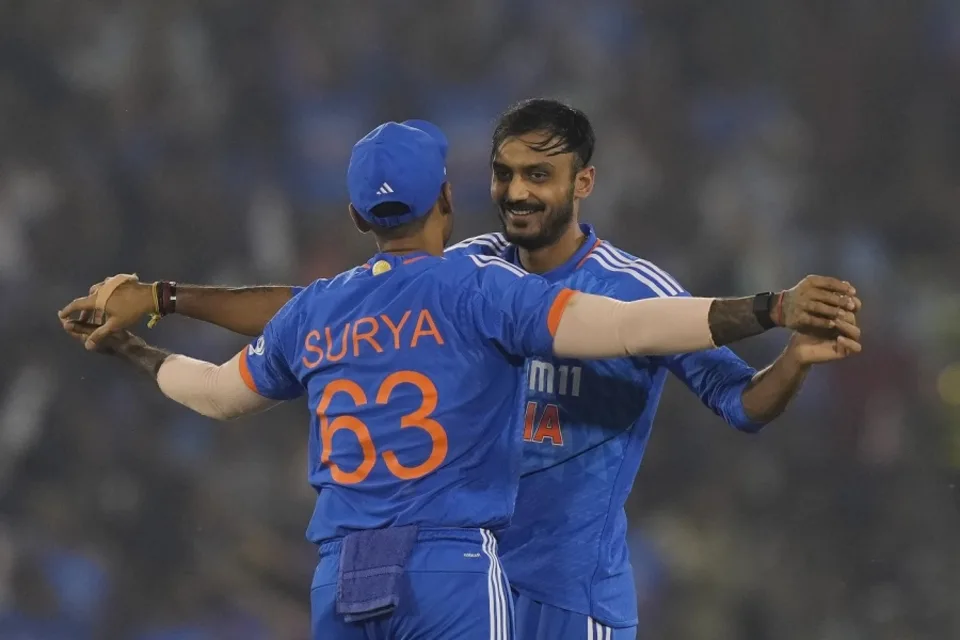
Axar Patel talks about India’s flexibe middle-order as India’s new T20 vice-captain gears up for England T20s.
Axar Patel is India’s newly appointed vice-captain in the format. He suggested a flexible middle-order could be the case in his press conference ahead of the five-match T20I series against England.
The remaining Twenty20 Internationals will be held in Chennai, Rajkot, Pune, and Mumbai after the series opens in Kolkata on Wednesday.
India has effectively employed Axar as a floater in recent years. After averaging 21.26 and hitting 131.25 in all T20s until the end of 2022, he has improved his performances considerably since the beginning of 2023, averaging 30.32 and hitting 145.62. It also reflects his versatility, as India, Delhi Capitals, and Gujarat have sent him out in a range of situations. In the past two years, he has scored six half-centuries from Nos. 3, 4, 6, and 7.
Over recent months, India have used not just Axar but also Hardik Pandya, Tilak Varma, Nitish Reddy, Washington Sundar and Rinku Singh as floaters with varying levels of success.
“Batting wise, it’s not just with me, but we spoke in 2023-24 itself that the openers are fixed, but everyone from Nos. 3 to 7 have been told that they can come into bat anytime, in any situation. It is not just that one batter will bat at a particular position,” Axar told reporters on Monday. “Our middle order will come to bat depending on the match situation, what kind of bowlers are bowling at the time, which match-up works well.
“We’ve spoken about that, how we can all be floaters, be it coming in early or obviously finishing. This is not just for me, but for everyone from No. 3 and below, especially if they are in good touch in the nets. We will adjust accordingly. In T20Is, how you use your batters is so crucial, so this is an important factor in batting.”
As Suryakumar Yadav’s deputy in T20Is, Axar felt he would have to to learn to take difficult calls. It is a topic he has discussed with the support staff too.
“It has just been a day, but as part of the leadership group there is an extra responsibility,” Axar said. “The T20I side is settled, so there’s not much pressure, but there are small decisions that need making and during the game I need to work closely with Suryakumar.
“As part of the leadership group, you have to learn to take harsh decisions. We have spoken about sharing our genuine opinions and that will help build trust in this group.
“The T20I format is such that it is so fast that you have to make decisions quickly, so the larger conversations [with the coaches] is about how to do that.”
With the Champions Trophy approaching, India’s immediate focus is on ODI cricket; but, after that competition concludes, T20Is will become more important. The T20 World Cup will be co-hosted by reigning champions Sri Lanka and India in February and March of 2026. Before starting their championship defence, India doesn’t have many Twenty20 Internationals (T20Is) planned other from these five matches against England. They currently have three T20Is in Bangladesh in August and five at home against South Africa later in the year.
“The World Cup is coming up in a year so how we approach leading up to that, we want to try it from now itself. That’s the main target,” Axar Patel said. “Momentum is a big thing because if you start well, you can carry it. We finished 2024 well so we want to carry the momentum into this series too.
“But we’ve discussed that the past is past, however, we want to move ahead with the positives we gained from there. We have taken forward the points that brought us success.
“Transition is also something happening, across all formats, but that’s a call for the selectors and captain to take.”

